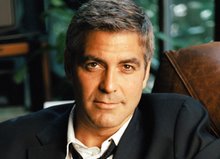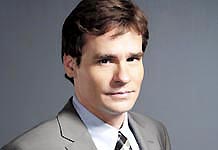 The Trouble With Physics by Lee Smolin
The Trouble With Physics by Lee SmolinI don't know enough about physics to critique the thesis of this book, but I was impressed with the arguments put forth by Smolin. I learned a lot and won't begin to admit I understood everything, but I found it fascinating. String theory, quantum theory, the standard model, and then loops and superstrings, and gauge bosons, my head was spinning. But Smolin writes clearly and easily, and I was getting bits and pieces straight in my head.
The book starts with the Unfinished Revolution and the five great problems in theoretical physics left to be solved. A bit of history and background. The second section was a Brief History of String Theory. This got a lot more confusing and I did some skimming, I confess. Again, the ideas are difficult and I couldn't expect to understand just from reading a few chapters what string theory is all about. (I have The Elegant Universe here to read later, which is the story of String Theory; I also have the DVD, which will probably get watched first.) A third section looks Beyond String Theory at other areas of research, besides string theory, in physics. Ideas got pretty big and abstact here.
The last section is really the most interesting for a person from the outside of the physics establishment. Smolin examines how the physics community has arrived at its standstill, with an elegant theory of strings that has little to no experimental evidence to support it. A combination of sociology, groupthink, and the politics of academia have lead to what he calls the trouble with physics. He offers some solutions, and doesn't claim to not have been a part of everything, but he certainly wasn't part of the in crowd of string theory, and so he is on the outside, somewhat, looking in. It leads a credibility to his argument.
At times, he reminded me of Richard Feynman, mentioned often in the book. Feynman was a bit of a rebel, and didn't lack any confidence in his abilities. Feynman was awarded the Nobel Prize, so he has the cred to back up his bravado. Smolin includes personal situations he's been involved in, and they are the framework to tell this story, but he seemed to always have recognized the good idea that others didn't, or known the outsiders he admires so much. Not a criticism, but just a feeling I got as I read. But to be able to outline the problems he sees, it takes a big thinker and someone who is a little outside the system. He also acknowledges his role in the systematic problems he identifies.
I wasn't sure whether to read this first, or to learn about String Theory (The Elegant Universe.) I decided on this one, with the hopes it will help me to critically read the other. This was a very interesting book, and should be read my most scientists or people with an interest in science, and physics especially. The writing is very accessible and his arguments are persuasive.







Smolin's book sounds interesting enough, but I'm getting the impression that his string-theorist persona leaked through. String theorists, like high-energy particle theorists, nearly always believe that they are working on not only the most interesting problem in physics, but the only problem worth bothering with.
ReplyDeleteNow, I used to do research in experimental thermodynamics, and we tended to think that the problems we were working on were actually interesting and important, too.
But maybe it's what keeps them going.
I didn't get that impression. He felt that too much time and resources had been spent on something with absolutely no experimental proof. If it could be proven, then great, but start looking in other directions and ideas.
ReplyDeleteI didn't think he was a string theorist at all, he had spent some time, but mostly, not. It felt like the String theorists were the bullies on campus, and only their friends were allowed to play.
Grande Smolin Democracia Ya de las Ciencias, Ok.Mil Veces Ok.HRB
ReplyDelete